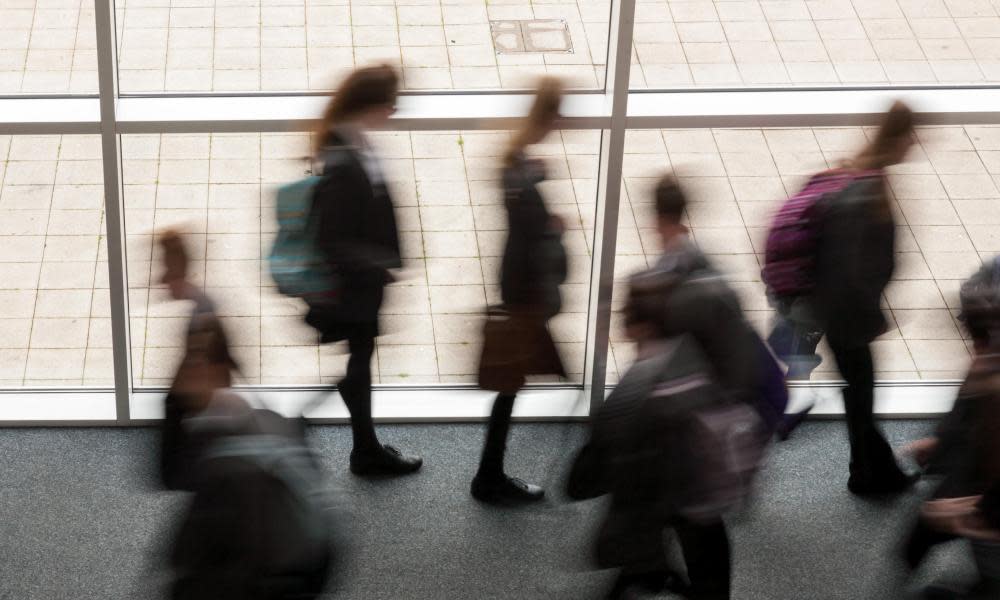Teachers handing out toothpaste as rising UK costs hit pupils’ dental health

Four out of five UK teachers have given toothbrushes and toothpaste to students, with the cost of living crisis affecting the oral health of children, according to new research.
A survey of secondary teachers by hygiene poverty charity Beauty Banks and the British Dental Association (BDA) has revealed that 81% of teachers say some children in their school have no access to toothpaste, with 41% saying this leads to them being socially excluded because of poor oral hygiene.
The study came as household budgets continued to take a battering in the UK, with inflation above 10% and the International Monetary Fund warning that Britain was expected to be the only large industrialised country to face a shrinking economy this year.
Three-quarters of teachers said lack of access to toothpaste and toothbrushes had led to children having discoloured teeth, half said they knew children with noticeable tooth decay and just under a third had witnessed children in dental pain or suffering from halitosis.
One in four teachers surveyed said they were kept awake at night worrying about their pupils’ wellbeing, while 38% reported feeling helpless.
Researchers spoke to 260 UK state secondary school teachers, including one assistant head teacher in Lewisham who said some students were still wearing Covid masks to hide their mouths. The safeguarding lead in the same school in Lewisham said the cost of living crisis had resulted in more calls from parents who couldn’t afford to buy basic hygiene products.
“The cases of bullying amongst young people because of symptoms associated with poor oral hygiene is at a record high,” they said. “[We] are dealing with many students who are not brushing their teeth every day, are showering infrequently and cannot afford to wash and dry their clothes effectively.”
The Royal College of Paediatrics and Child Health recently warned that toothbrushes were becoming a “luxury item” for some families, and that the state of children’s dental health was a “national disgrace”.
Jo Jones, a co-founder of Beauty Banks, which was established in January 2018 to supports families in the UK who can’t afford to stay clean, said: “We work with charities including food banks, family centres, domestic abuse centres, homeless shelters and universally – across the board – toothpaste is now our most requested item. Before the cost of living crisis, it wasn’t even in the top three”
Tooth decay is the most common reason for hospital admissions among young children, ahead of acute tonsillitis.
The BDA has warned that tooth decay in children has reached epidemic levels, with any recent gains expected to be undone by ongoing access problems and disruption to public health programmes. The latest NHS dental statistics show that 44.8% of children attended a dentist appointment in the last year, down from 58.7% in 2019-20.
Last year BBC and BDA research found that 91% of practices in England could not take on new adult NHS patients, while 79% were not accepting new child NHS patients.
The British Dental Association chair, Eddie Crouch, accused the government of being “asleep at the wheel” and failing to tackle the crisis.
“Our youngest patients face a perfect storm, with millions unable to access care, or even the basics to maintain good oral health. This shocking survey underlines that deep health inequalities are set to widen,” he said.

 Yahoo Movies
Yahoo Movies 
